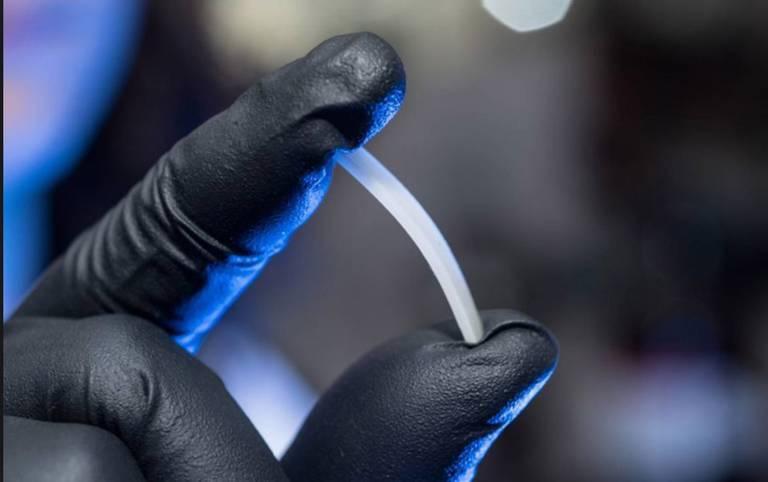
A team of chemists have produced a polymer that apparently has all the benefits of today’s plastic but can be recycled an immeasurable number of times.
If businesses, particularly manufacturers, can replace plastic with the polymer, one of the world’s most severe pollution problems could be minimized or halted.
A team at Colorado State University say their new product can be made in a relatively environmentally harmless way.
The material’s molecules can be turned into polymer at room temperature in only a few minutes with the use of small amounts of a catalyst, but no solvents. The polymer is lightweight, heat-resistant, strong and durable, just like a conventional plastic.
The first big difference, however, is that it is far easier to recycle than plastic, which requires toxic chemicals and complicated procedures. The material breaks down into its molecular state through a reaction with a catalyst and can be re-polymerized without having to be purified.
The second difference is that the law of diminishing returns does not apply as it does to plastic because the recycling process can be performed time and time again.
The Colorado researchers expect their discovery to confer enormous ethical and environmental benefits. Products made from the polymer would pass through the hands of industry, the retail sector and customers – but would have to be recycled and not placed in landfill holes or thrown into the oceans.
The ideal result would be that the plastic in use today would be banished and would no longer pose a threat to the planet.
The team will now investigate other ways to synthesize the polymer and will work on methods of ensuring that after use the material goes to recycling centers.
This product follows an earlier version that researchers found was soft, had poor heat resistance and had to be manufactured under extremely cold conditions.
Professor Eugene Chen, the lead researcher, said: “The polymers can be chemically recycled and reused, in principle infinitely. It would be a dream to see this chemically recyclable polymer technology materialize in the marketplace.”
Photo: Colorado State University














